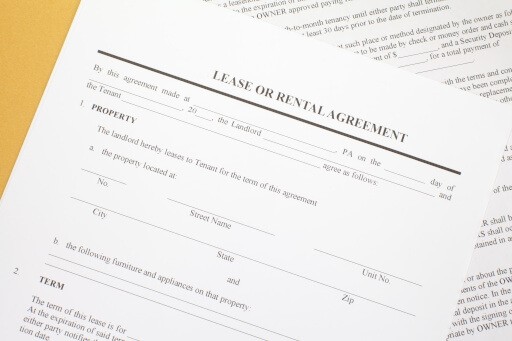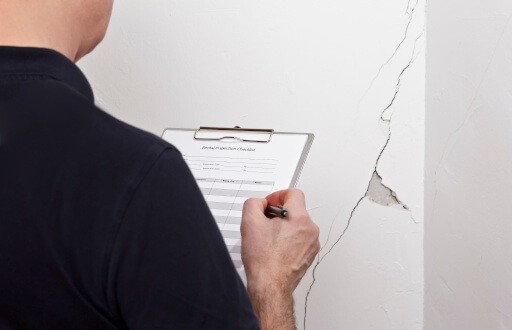If you’re a landlord considering application fees, you should know a few things. When a renter applies to your listing, you’ll have to screen them to see if they’re a good fit for your rental property. Screening future tenants cost money, so landlords usually charge an application fee to run background and credit checks on applicants. When you receive interest in your property from potential applicants, one of the first questions they will ask is the application fee cost.
What is an apartment application fee, and why is it needed?
An apartment application fee is a one-time payment prospective tenants make to fill out a rental application for an apartment. While the exact price of the fee can vary nationwide, most landlords charge it. In rare cases, a landlord won’t charge this fee if they trust the applicant enough to answer their questions honestly and show proof. The fee can cover various expenses, such as credit checks, background checks, and the rental application process.
What is a standard application fee for an apartment?
Most rental application fees cost about $30 per person because application fees generally cover the cost of screening a tenant. Therefore, you should only use the money for applicant screening procedures. Depending on your state, the application fee may not be higher than the cost of a background and credit check, so check your local laws regarding rental application fees.
To collect an application fee, you may either do so through an online platform or via cash, check, or card. You may charge what you’d like for an application fee (as long as you abide by your local laws) but remember that you don’t want to deter potential tenants from applying to your property. If the fee to apply is too high, they may apply elsewhere. But if the fee is too low, you may find that not all applicants are serious about renting your property.
Know the State Laws Regarding Application Fees
State laws about application fees differ significantly, so you must clearly understand the rules and regulations in your own state. Both renters and landlords should check their state laws on this. It will keep both parties in the know so they aren’t being overcharged (or overcharged) for an application fee. As a landlord, be sure that you are using best practices for the pricing and policies of your application fee.
|
Alabama |
No fee limits |
|
Alaska |
No fee limits |
|
Arizona |
No fee limits |
|
Arkansas |
No fee limits |
|
California |
Fees change annually based on Consumer Price Index (CPI) |
|
Colorado |
No fee limits |
|
Connecticut |
No fee limits |
|
Delaware |
Fee is $50 or 10 percent of monthly rent (whichever is more) |
|
District of Columbia (Washington DC) |
No fee limits |
|
Florida |
No fee limits |
|
Georgia |
No fee limits |
|
Hawaii |
No fee limits |
|
Idaho |
No fee limits |
|
Illinois |
No fee limits |
|
Indiana |
No fee limits |
|
Iowa |
No fee limits |
|
Kansas |
No fee limits |
|
Kentucky |
No fee limits |
|
Louisiana |
No fee limits |
|
Maine |
No fee limits |
|
Maryland |
No fee limits |
|
Massachusetts |
Only licensed brokers can charge application fees. |
|
Michigan |
No fee limits |
|
Minnesota |
Fee cannot cost more than the actual screening. |
|
Mississippi |
No fee limits |
|
Missouri |
No fee limits |
|
Montana |
No fee limits |
|
Nebraska |
No fee limits |
|
Nevada |
No fee limits |
|
New Hampshire |
No fee limits |
|
New Jersey |
No fee limits |
|
New Mexico |
No fee limits |
|
New York |
Fee cannot exceed $20. Landlord must waive the fee if the applicants provides a copy of the credit or background check completed within the last month. |
|
North Carolina |
No fee limits |
|
North Dakota |
No fee limits |
|
Ohio |
No fee limits |
|
Oklahoma |
No fee limits |
|
Oregon |
No fee limits |
|
Pennsylvania |
No fee limits |
|
Rhode Island |
No fee limits |
|
South Carolina |
No fee limits |
|
South Dakota |
No fee limits |
|
Tennessee |
No fee limits |
|
Texas |
No fee limits |
|
Utah |
No fee limits |
|
Vermont |
No fee limits |
|
Virginia |
Fee cannot cost more than $50 |
|
Washington |
Fee cannot cost more than the actual screening. |
|
West Virginia |
No fee limits |
|
Wisconsin |
Fee cannot cost more than $20. Landlord must give the applicant a report copy. |
|
Wyoming |
No fee limits |
Are application fees for apartments refundable?
In some circumstances, particularly in hot rental markets, you may end up renting your property to an applicant while you have the applications and fees of other applicants still pending. More than one renter can apply to your property. It gives you options if one applicant doesn’t meet your standards for renting the property, and it will keep you from missing out on a potentially great tenant just because they weren’t the first to apply.
However, limiting the number of applications you accept per unit is essential. Suppose you have application fees from prospective tenants, but you won’t need to run their background check because you’ve already accepted another’s application. In that case, you should consider refunding the fees to the applicants. However, you may also make your apartment application fees non-refundable (as long as you abide by your state laws). Be sure to notify potential tenants of your policy. To avoid having to return application fees, you can choose to only accept one application (per unit) at a time.
Should each tenant pay an application fee?
Every person on the lease over 18 should be charged an application fee because you will also need to run their background and credit checks. Application fees for apartments are not per unit but rather per lessee.
Do tenants pay an application fee before viewing the property?
If a renter would like to view or take a tour of your property, they should be able to do so at no cost. The tenant can take a self-guided or virtual tour, or you can accompany them to show them around the community and the unit. Many landlords request to hold onto the renter’s driver’s license until the tour is over.
Suppose the renter will take a self-guided tour, meaning they will be touring the unit themselves and will not see you in person. In that case, you may request an image of their driver’s license or credit card information (to prevent anything terrible from happening to your property during the tour). Use safety precautions if you’re choosing to have tenants tour the property on their own.
If you feel comfortable giving the renter the code to view the unit after getting their basic information and informing them of the requirements necessary to get their application approved, then feel free to do so. If the renter likes your property and wants to put in an application, it is acceptable to collect the application fee.
Why you should run background and credit checks
If you don’t plan to run background and credit checks on potential tenants, you should not be charging them to apply to your rental. However, most landlords find it vital to take such precautions. Running a credit check will help you get a clear sense of a potential tenant’s financial history, and a background check will assure you that they have no criminal record or other red flags such as prior evictions
Apartments.com makes it easy to screen tenants, get the information you need, and find a qualified renter fast. Unlike our competitors, who use various third-party resources to collect information, we partner with TransUnion to provide you with screening reports for evictions, credit, and criminal history. Another feature you’ll find only on Apartments.com is support for co-signers, guarantors, and co-applicants. If you need more information to make a decision, you can request supporting documents from potential tenants directly on our platform. Get all the information you need to find the right tenant quickly and easily.
Frequently Asked Questions
Should Landlords Charge a Rental Application Fee?
Though landlords are not obligated to charge apartment application fees, they often use the money to cover the costs of background and credit checks. Additionally, these fees can help ensure that only serious applicants apply.
Are apartment application fees refundable?
It depends on the state, but in most cases, a landlord doesn’t have to refund an application fee. Minnesota is the only state in which a landlord must refund the remainder of the fee if it exceeds the cost of the screening services.
Should every renter pay an application fee?
Generally, yes. By charging an application fee from every renter, you can cover their screening costs without spending your money to fund it.
Is the rental application fee different than a deposit?
Yes, they are different. The deposit is a flat amount a tenant pays their landlord at the start of a lease. A landlord holds onto this money in case their tenant damages the property. Once the lease ends, the landlord expects the property for damages. If there are none, the landlord returns the deposit to the tenant. Comparatively, the rental application covers the costs of screenings, credit, and background check services. This money is not refunded to the applicant, even if you do not choose them.











